Specialty Coffee Beans Lists
-
Ivorian Coffee Market and characteristics of Ivorian coffee

Ivory Coast (CotedIvoire) has never produced the best quality coffee and rarely produces coffee from Arabian coffee trees. In the early 1980s, it was the third largest coffee producer in the world and is still the fifth largest coffee producer even today. In terms of coffee production, C ô te d'Ivoire is second only to Indonesia. Coffee production in C ô te d'Ivoire: Kurt
2015-03-27 Ivory Coast coffee market characteristics C ô te d'Ivoire CotedIvoire -
Angolan Coffee the characteristics and market of Angolan coffee

Angola is the fourth largest coffee industry in the world, but it produces only a small amount of Arabica coffee and is of high quality. The origin of coffee in Angola: 98% of the coffee in Angola (Angola) is Roberts coffee. The former best brands in Angola are Ambriz, Amborm and NovoRedondo, all of which are known for their consistent quality
2015-03-27 Angola coffee specialty market world big four industry -
Vietnamese Coffee Flavor description and characteristics of Vietnamese coffee beans

Perhaps under the influence of French colonial rule, coffee grown in Vietnam has a French flavor. Arabica coffee was first brought to Vietnam by French missionaries. Coffee production in Vietnam: 96% of Robbins coffee comes from small farms, but some state-owned farms also grow coffee trees. Near Tokyo (Tonkin) Bay, there are mostly Java or bourbon varieties. The main variety produced is Robbins special coffee.
2015-03-26 Vietnam coffee coffee beans flavor description characteristics Xu is France colonial rule -
Coffee producing countries in Tanzania and Africa
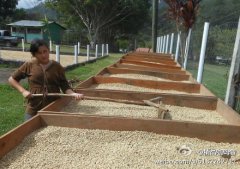
Due to political instability and rampant diseases and insect pests, the coffee industry in Tanzania has been damaged, leading to a decline in the overall level of coffee and instability in quality, which in turn lead to lower prices, which are usually the result of a further decline in the coffee industry. What's more, it is estimated that more than 12% of the Arabica coffee grown in northern Tanzania from 1969 to 1985 was smuggled.
2015-03-26 Tanzania coffee Africa coffee beans producing countries introduction due to political instability -
Peruvian coffee the characteristics and market of Peruvian coffee

Peru (Peru) is also a big coffee producer. Peruvian coffee producing areas: up to 98% of Peruvian coffee is grown in forest areas, and most of the producers are small farmers. Peru's finest coffee is produced in Chanchmayo, Cuzco, Norte and Puno. Most Peruvian coffee is grown under natural conditions, but it is difficult to confirm
2015-03-26 Peru coffee specialty market also production big -
Common sense of coffee bean producing countries Coffee from the Dominican Republic
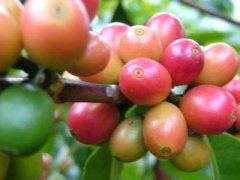
The Dominican Republic (DominicanRepublic) is adjacent to Haiti, and both own the island of Hispaniola (Hispaniola). In the early 18th century, coffee was grown in the Dominican Republic. Coffee production in the Dominican Republic: the best coffee producer in the Dominican Republic is the Barahona region in the southwest, but Juncalito
2015-03-26 Coffee beans country of origin common sense Dominica Republic coffee -
Honduran coffee the characteristics of Honduran coffee

Coffee in Honduras is imported from El Salvador. Coffee production in Honduras increased significantly after the Brazilian frost in 1975, more than tripling in 20 years. Coffee producing area in Honduras: as in other places, the coffee grade in Honduras depends on altitude: coffee grown at 700-1000 meters above sea level is medium, 1000-1000 above sea level.
2015-03-26 Honduras coffee specialty is from -
The characteristics of Malagasy coffee

The Malagasy government plans to develop about 2000 hectares of Robbite coffee plantations and about 5000 hectares of Arabica coffee plantations. Therefore, the development of the coffee industry on the island depends on its potential in Arabian coffee, and once successfully developed, this coffee is expected to become the best. The origin of Madagascar coffee: Madagascar (Madagascar) is basically Robbins.
2015-03-26 Motor Garth coffee features -
The characteristics and Market of Cuban Coffee
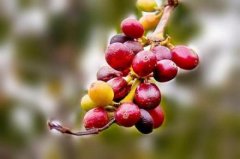
According to records, there were 2067 coffee plantations in Cuba in 1833. Among them, the earliest seven coffee plantation sites, such as Raglan Piedra, Elkovre, El Salvador and Nisto Perez, are listed as World Cultural Heritage. These seven coffee plantations are located in the foothills of Maestra in the provinces of Santiago and Guantanamo in southeastern Cuba in the 19th century (figure 17 is a postcard).
2015-03-26 Cuba coffee specialty market records 1833 2067 -
Coffee beans producing country Coffee Common sense Coffee from Zaire
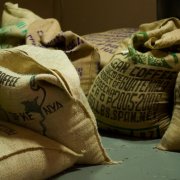
The high-quality coffee produced in Zaire is dwindling, but the taste of Zaire coffee is still excellent. The origin of coffee in Zaire: the best Zaire coffee is grown in the north-east of the country, especially in the provinces of Oriental and Kivu, where excellent beans and giant beans have been produced in the past. Minority of Zaire
2015-03-26 Coffee beans country of origin coffee common sense Zaire produced -
Common sense of Coffee producing countries Coffee from New Caledonia

New Caledonia (NewCaledonia) is a former French colony, with only 10 per cent of the land available for farming, with coffee and corn being its main crops. In 1860 missionaries introduced coffee from LaReunion. Coffee producing area of New Caledonia: the variety of coffee beans grown in New Caledonia is the extraordinary Robbite coffee. The specialty of New Caledonia Coffee
2015-03-26 Coffee beans country of origin common sense New Kerry Niya Coffee New -
The origin of coffee beans introduces coffee from Papua New Guinea

The frost in 1975 destroyed most coffee crops in Brazil, but stimulated the development of the coffee industry in Papua New Guinea. The Government has implemented a scheme to subsidize rural or collective landowners to create about 20 hectares of coffee plantations. This measure does increase the penetration of coffee in the local economy, resulting in an increase in the annual output of coffee. Papua New Guinea.
2015-03-26 Coffee beans Origin introduction Papua New Guinea Coffee -
The characteristics of Zimbabwe Coffee

Coffee cultivation in Zimbabwe began relatively recently, in the 1960s, when farmers in southern Africa set up coffee plantations. Coffee production in Zimbabwe: coffee cultivation in Zimbabwe is mainly concentrated in the eastern highlands near Mozambique, mainly in the Chimanimani Mountains and northward in Niyan.
2015-03-26 Zimbabwe coffee specialty planting -
Coffee from the Democratic Republic of Sao Tome and Principe

In 1800, the Democratic Republic of Sao Tome and Principe (SaoTomeandPrincipe) introduced Arabian coffee trees from Brazil. The Democratic Republic of Sao Tome and Principe (SaoTomeandPrincipe), the second smallest independent country in Africa, was once a Portuguese colony and did not win its independence until 1975. Coffee production in the Democratic Republic of Sao Tome and Principe: Sao Tome and Principe
2015-03-26 Duomei Purin Sippi Democracy Republic Coffee 1800 Domi -
The characteristics of Reunion Coffee

In 1715, the first coffee trees (about 40) were transported from the Yemeni port of Moka to LaReunion, but unfortunately only two survived. By 1719, coffee plantations had begun to flourish and the first coffee beans were sold. Over the next few years, the government took a hard measure: the islanders, black and white, had to plant 100 coffee trees a year. The law of 1723
2015-03-26 Reunion coffee specialty 1715 a batch of coffee about 40 also -
Tahiti coffee the characteristics of Tahiti coffee
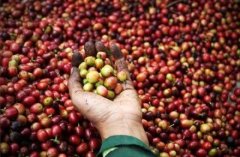
It would be a privilege to have Tahiti coffee, because it is extremely rare. Tahiti Coffee Origin: Tahiti Coffee is a kind of Arabica Coffee (TahitiArabica). Tahiti is the largest island in the Social Islands (SocietyIslands). Tahiti coffee features: Tahiti coffee.
2015-03-26 Hiti coffee specialty if can Tahiti that can really -
The characteristics of Venezuelan coffee

Venezuela introduced coffee trees from Martinique as early as 1730, but coffee production was almost abandoned at the height of the oil industry. Recently, coffee plantations have begun to recover, with original Tipica and bourbon coffee trees and new plantations laying the foundation for coffee exports.
2015-03-26 Venezuelan coffee specialty -
Mexican coffee Mexican coffee specialties and markets

Mexico is the fourth largest coffee producer in the world. Most of its coffee is produced by nearly 100,000 small farmers, and the large estates that once dominated the coffee industry are few and far between. Mexico's coffee growing region: Mexico's best coffee growing region is Chiapas in the south of the country, where coffee varieties include Tapanchula and Hui
2015-03-26 Mexico Coffee Specialty Market -
The characteristics of St. Helena Coffee
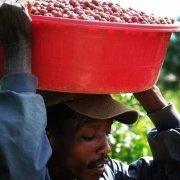
Coffee was first grown on the island of St. Helena (St.Helena) in 1732. Although some other introduced plants have failed since the 1860s, coffee trees have taken root and flourished here. The island also experienced a coffee improvement campaign to produce the best quality coffee. Coffee producing area of St. Helena: coffee trees on St. Helena have been planted.
2015-03-26 Saint Herr Lena Coffee Features 1732 St. -
The characteristics and Market of Rwandan Coffee

Since the 1920s, Arabica coffee grown in Rwanda has been famous for its unique fruit sweetness and rich grass aroma. In recent years, the Rwandan government has taken positive measures to vigorously promote coffee production, set up coffee production cooperatives in various places, and give technical guidance and financial support to farmers, so that coffee production has made considerable progress. From Rwanda.
2015-03-26 Rwanda coffee specialty market last century 1920s beginning
